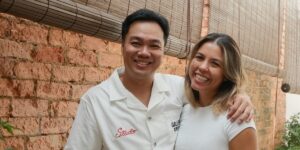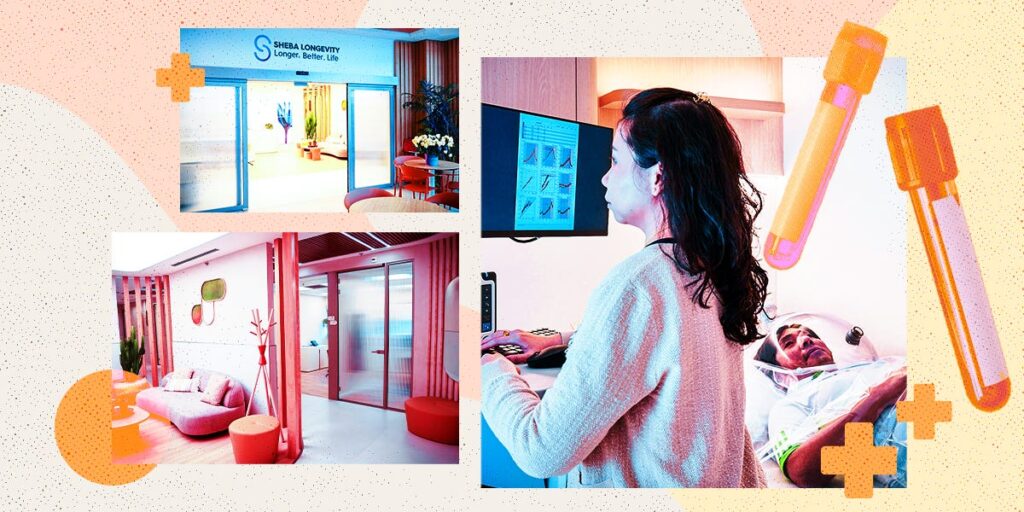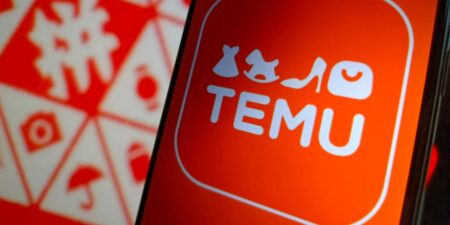- Longevity clinics aim to fight diseases before they take hold.
- A longevity physical typically takes about eight hours and costs more than $10,000.
- This article is part of “Trends in Healthcare,” a series about the innovations and industry leaders shaping patient care.
If you want to look and feel young, the longevity industry can be something of a rabbit hole. There’s no shortage of things you can try at home or find on vacation: luxury spas, online supplement services, biological-age tests, microbiome-focused juicers.
There’s also a growing set of medical clinics taking emerging longevity research into a doctor’s-office setting. These longevity clinics are practicing medicine in reverse: Take apparently healthy people and figure out what’s going to be wrong with them if business continues as usual. Some call the trend “medicine 3.0.”
The very first longevity clinic, Human Longevity, was set up in San Diego 10 years ago. Its cofounder J. Craig Venter, a biochemist who was among the first scientists to map the human genome, says that while everyone wants to have control over their lifespan and wellness, without gathering more precise information about how people are changing over time, preventive care can only go so far.
“You can exercise, you can eat a healthy diet, but I contend you could eat 10 pounds of kale a day and still have a tumor that you don’t know about,” he told Business Insider. “My view is you can tell me whether you feel healthy; I can tell you whether you’re actually healthy.”
Each longevity clinic operates a little bit differently, but it’s all high-end concierge medicine aimed at understanding how your body changes through time. Longevity clinics’ survey indicators include genetics, gut health, physical strength and fitness, cognition, body scans, and blood work. It’s an executive physical on (figurative) steroids.
Venter said an MRI scan at Human Longevity identified a case of prostate cancer that his regular doctors missed. “If I hadn’t discovered it when I did, I would’ve died sometime in the last five years,” he said.
Most longevity clinics require an initial visit that takes about six to eight hours for all the testing, scans, and interviews.
“Longevity is very simple and straightforward,” Venter said. “If we can keep you from dying prematurely from heart disease or cancer, as examples, because they’re the two biggest killers of men and women of all races, you’ll live a longer, healthier life.”
Human Longevity says among 1,000 “asymptomatic” patients who visited its clinic, roughly 40% had some kind of non-life-threatening condition requiring long-term medical attention or monitoring, like a heart issue, or genetic predisposition to cancer or diabetes. Another 14% identified a pressing health issue that needed more immediate attention. Human Longevity’s well-heeled clients pay about $25,000 for the complete workup.
A next-level executive physical with a price tag to match
Over the past few years, other clinics have been popping up around the world, with similarly eye-popping price tags. Each has a slightly different take on how to practice longevity medicine, but they’re built around the same core concepts. Disease prevention is key to healthy aging, and knowing how your genes interact with your environment and habits can change your life.
Peter Attia, a longevity doctor in Texas, might have the best-known longevity-medicine practice, though he stresses he’s not accepting new clients. (His pricing is rumored to be between $90,000 and $150,000 per year.) There’s also Tony Robbins’ and Peter Diamandis’ Fountain Life ($3,000 to $19,500), with locations in New York, Florida, and Texas; Biograph ($7,000 to $14,500) in San Mateo, California; and Chi Longevity, which opened last year in Singapore and costs $11,100 for a 10-month program. There is no regulatory body or accreditation system for longevity clinics.
Craig McGee, a Chi Longevity cofounder, says that what separates these offerings from a longevity spa or a retreat is the medical attention, with an emphasis on testing and observation over time.
“It’s not just you come for a week, you have the experience, and then you pay your invoice,” he said.
At Chi, like at other longevity clinics, patients are offered a dashboard with personalized recommendations for exercise, sleep, and medications. They’re set up with a health coach for diet advice. And they may use fitness and health trackers, as well as a continuous glucose monitor to watch their blood sugar. Then about six months later they come back, retest, and see how well it’s all working.
Currently, Chi uses five different biological age tests to assess how well its clients are weathering time, but Dr. Andrea Maier, one of the cofounders at Chi, says she wishes there were even more well-validated biological age tests she could use.
“I would love to have 10, 15, or 20,” she said. “Every organ is aging at a different pace, and every organ, I would say, deserves a different clock.”
From graying biohackers who arrive taking more than 20 different supplements a day, and wondering how well its all working, to younger folks just hoping to optimize their routines, Maier says Chi aims to give clients new routines they can actually enjoy, making them feel better inside and out.
“We have many clients who are biologically younger after the interventions,” she said. “Many of our clients have more happiness, including me. I’m getting fitter and fitter, which is great.”
Longevity clinics for all?
If you’re wondering whether this kind of treatment could ever be attainable for anyone who’s not a billionaire, the answer seems to be: maybe.
A public longevity clinic opened in Singapore in August for clinical trials. And there’s a free option that’s been connected to the largest Israeli hospital in Tel Aviv since May 2023.
Good luck getting in, though. Both were flooded with interest and have long waitlists.
Read the full article here
















